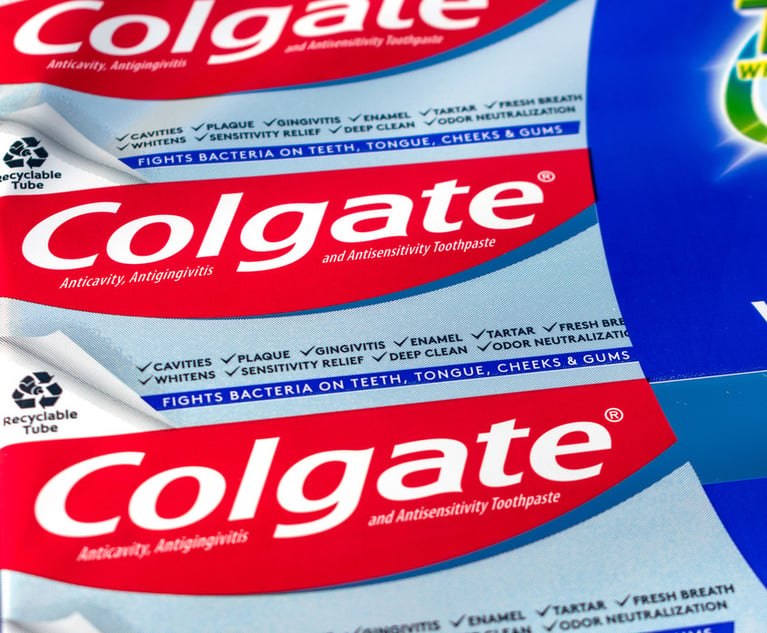Appellate Court Upholds Dismissal of Obese Man's ADA Lawsuit Against Medtronic
The U.S. Court of Appeals for the Ninth Circuit, however, punted on the question of whether morbid obesity is itself an “impairment” under the ADA, finding that the plaintiff couldn't establish that his weight was the cause of his firing.
August 20, 2019 at 06:38 PM
3 minute read
The original version of this story was published on The Recorder
 (Photo: Shutterstock.com)
(Photo: Shutterstock.com)
A federal appellate court has upheld a win for medical diagnostic company Medtronic Inc. in a lawsuit brought under the Americans with Disabilities Act by an employee who claimed he was fired because of his weight.
In Tuesday’s ruling, however, the U.S. Court of Appeals for the Ninth Circuit punted on the question of whether morbid obesity is itself an “impairment” under the ADA by finding that the plaintiff, former Medtronic facility maintenance technician Jose Valtierra, couldn’t establish that his weight was the cause of his dismissal from the company.
“Valtierra admits he closed 12 maintenance assignments as having been completed when he had not done the work,” wrote Ninth Circuit Judge Mary Schroeder, adding that the plaintiff had worked for Medtronic for more than a decade always while weighing more than 300 pounds. “There is no basis for concluding that he was terminated for any reason other than Medtronic’s stated ground that he falsified records to show he had completed work assignments,” she wrote.
The Ninth Circuit decision upholds a ruling by U.S. District Judge Stephen McNamee of the District of Arizona who sided with Medtronic on summary judgment in the case. McNamee, however, had concluded that morbid obesity was not a physical impairment under the relevant Equal Employment Opportunity Commission regulations and guidance. McNamee held in accordance with appellate rulings from the Second, Sixth, Seventh and Eighth circuits that obesity itself couldn’t constitute a disability unless caused by an underlying physiological condition.
But at the Ninth Circuit, the EEOC filed an amicus brief arguing that the other circuits had incorrectly interpreted the agency’s rules and guidance and that obesity was “plainly physiological” in its effects. The agency contended that Valtierra had raised a genuine triable issue regarding whether his morbid obesity was an impairment, since his medical records showed his weight had adversely impacted several of his body systems.
Schroeder, however, concluded that the Ninth Circuit didn’t need to ”take a definitive stand on the question of whether morbid obesity itself is an ‘impairment’ under the ADA” since the plaintiff had failed to show “some causal relationship” between his alleged impairments and his dismissal.
Jessica Miller of the Zoldan Law Group in Scottsdale, who represented the plaintiff, didn’t immediately respond to a message Tuesday afternoon. Neither did Shawn Oller of Littler Mendelson, who represented Medtronic. Barbara Sloan, a lawyer from the Office of the General Counsel of the EEOC, and Bryan Neal of Thompson & Knight, who submitted an amicus brief backing Medtronic on behalf of BNSF Railway Co., both presented oral arguments when the case was heard at the Ninth Circuit in June.
This content has been archived. It is available through our partners, LexisNexis® and Bloomberg Law.
To view this content, please continue to their sites.
Not a Lexis Subscriber?
Subscribe Now
Not a Bloomberg Law Subscriber?
Subscribe Now
NOT FOR REPRINT
© 2025 ALM Global, LLC, All Rights Reserved. Request academic re-use from www.copyright.com. All other uses, submit a request to [email protected]. For more information visit Asset & Logo Licensing.
You Might Like
View All
Exits Leave American Airlines, SiriusXM, Spotify Searching for New Legal Chiefs
2 minute read
Divided Eighth Circuit Sides With GE's Timely Removal of Indemnification Action to Federal Court

Colgate Faces Class Actions Over ‘Deceptive Marketing’ of Children’s Toothpaste

John Deere Annual Meeting Offers Peek Into DEI Strife That Looms for Companies Nationwide
7 minute readTrending Stories
- 1How I Made Office Managing Partner: 'Always Be Willing to Work Harder Than the Person Next to You,' Says Esther Cho of Stradley Ronon
- 2People in the News—Feb. 10, 2025—Flaster Greenberg, Tucker Arensberg
- 3The Support Center for Child Advocates Welcomes New Executive Director
- 4'Shame on Us': Lawyer Hits Hard After Judge's Suicide
- 5Upholding the Integrity of the Rule of Law Amid Trump 2.0
Who Got The Work
J. Brugh Lower of Gibbons has entered an appearance for industrial equipment supplier Devco Corporation in a pending trademark infringement lawsuit. The suit, accusing the defendant of selling knock-off Graco products, was filed Dec. 18 in New Jersey District Court by Rivkin Radler on behalf of Graco Inc. and Graco Minnesota. The case, assigned to U.S. District Judge Zahid N. Quraishi, is 3:24-cv-11294, Graco Inc. et al v. Devco Corporation.
Who Got The Work
Rebecca Maller-Stein and Kent A. Yalowitz of Arnold & Porter Kaye Scholer have entered their appearances for Hanaco Venture Capital and its executives, Lior Prosor and David Frankel, in a pending securities lawsuit. The action, filed on Dec. 24 in New York Southern District Court by Zell, Aron & Co. on behalf of Goldeneye Advisors, accuses the defendants of negligently and fraudulently managing the plaintiff's $1 million investment. The case, assigned to U.S. District Judge Vernon S. Broderick, is 1:24-cv-09918, Goldeneye Advisors, LLC v. Hanaco Venture Capital, Ltd. et al.
Who Got The Work
Attorneys from A&O Shearman has stepped in as defense counsel for Toronto-Dominion Bank and other defendants in a pending securities class action. The suit, filed Dec. 11 in New York Southern District Court by Bleichmar Fonti & Auld, accuses the defendants of concealing the bank's 'pervasive' deficiencies in regards to its compliance with the Bank Secrecy Act and the quality of its anti-money laundering controls. The case, assigned to U.S. District Judge Arun Subramanian, is 1:24-cv-09445, Gonzalez v. The Toronto-Dominion Bank et al.
Who Got The Work
Crown Castle International, a Pennsylvania company providing shared communications infrastructure, has turned to Luke D. Wolf of Gordon Rees Scully Mansukhani to fend off a pending breach-of-contract lawsuit. The court action, filed Nov. 25 in Michigan Eastern District Court by Hooper Hathaway PC on behalf of The Town Residences LLC, accuses Crown Castle of failing to transfer approximately $30,000 in utility payments from T-Mobile in breach of a roof-top lease and assignment agreement. The case, assigned to U.S. District Judge Susan K. Declercq, is 2:24-cv-13131, The Town Residences LLC v. T-Mobile US, Inc. et al.
Who Got The Work
Wilfred P. Coronato and Daniel M. Schwartz of McCarter & English have stepped in as defense counsel to Electrolux Home Products Inc. in a pending product liability lawsuit. The court action, filed Nov. 26 in New York Eastern District Court by Poulos Lopiccolo PC and Nagel Rice LLP on behalf of David Stern, alleges that the defendant's refrigerators’ drawers and shelving repeatedly break and fall apart within months after purchase. The case, assigned to U.S. District Judge Joan M. Azrack, is 2:24-cv-08204, Stern v. Electrolux Home Products, Inc.
Featured Firms
Law Offices of Gary Martin Hays & Associates, P.C.
(470) 294-1674
Law Offices of Mark E. Salomone
(857) 444-6468
Smith & Hassler
(713) 739-1250








